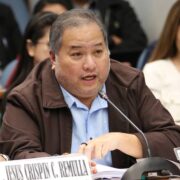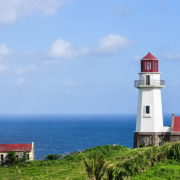A simple and effective estate planning tool for Filipinos

Whenever I bring up the topic of estate planning, I usually get the same reaction from many Filipinos, “That’s only for the super rich.”
People imagine it’s about complicated legal documents, high-powered lawyers and billion-peso inheritances. And because of that, most ordinary families avoid the topic altogether.
But estate planning is not just for the wealthy. If you own a home, a car, a small business, or even a simple piece of land in the province—you already have an estate.
And when you pass away, whether you like it or not, that estate will need to be transferred to your heirs. Without preparation, this process can be costly, messy and emotionally draining for the people you leave behind.
Here in the Philippines, estate taxes can take a big bite out of what you worked for. The law imposes a flat 6-percent tax on the net estate. That may not sound like much, but it adds up quickly.
A P10-million estate means P600,000 in taxes. And the law requires that the estate tax be paid before titles can be transferred or assets accessed.
Families who aren’t ready for this often end up scrambling—sometimes forced to sell property just to pay the tax bill.
I’ve seen it happen many times. A family works hard for decades to buy a modest house, only for the children to sell it below market value after their parents passed away, just so they can pay the estate tax. What was meant to be a lasting inheritance becomes a financial burden.
But it doesn’t have to be that way. There’s one tool that can make the process simple, accessible and effective for Filipinos at every level: life insurance.
Unlike property or business interests, which take time to liquidate, life insurance provides instant cash exactly when it’s needed.
When the policyholder passes away, the proceeds go directly to the beneficiaries. That money can immediately be used to pay estate taxes, settle debts or provide liquidity for the family.
It’s not locked in bureaucracy or waiting for documents to clear. It’s there when the family needs it most.
And here’s what makes it even more practical: life insurance is affordable. You don’t need to be a millionaire to buy coverage. A middle-class breadwinner can purchase a policy large enough to cover estate taxes or provide security for the family at a reasonable cost. Compared to the financial stress of scrambling for cash later, the premiums are a small price to pay.
Let me give you an example. Imagine you own a home in Quezon City worth P12 million. When the time comes, your heirs will face a tax bill of around P720,000. If they don’t have that money, they will be stuck.
But if you had set up a P1-million life insurance policy with your children as beneficiaries, the payout would cover the estate tax immediately. No need for panic. No need for fire-sale prices. No need to argue among siblings.
The home stays with the family and your children are spared unnecessary hardship.
I’ve seen too many families torn apart not just by grief, but by money. Brothers and sisters fight over who should pay what, or which property to sell, or how to divide assets that can’t easily be split.
Life insurance can prevent much of that heartache by providing clarity and cash at the right time.
As a Christian, I see this as an issue of stewardship.
Proverbs 13:22 says, “A good man leaves an inheritance to his children’s children.”
That inheritance is not just about wealth; it’s about leaving peace, stability and wisdom.
Life insurance allows us to be good stewards by making sure that what God entrusted to us—our homes, businesses and assets—can be passed down smoothly to the next generation.
The process is not complicated. Start by listing your assets and estimating their value. Compute roughly 6 percent, and that gives you a ballpark figure for estate taxes. Then get a life insurance policy that can cover that amount, or even a bit more. Keep your beneficiaries updated, and review your plan regularly as your assets grow.
It doesn’t take months of paperwork. It just takes the decision to prepare.
I understand that many Filipinos are uncomfortable talking about death. But ignoring the conversation won’t make the problem go away. In fact, avoidance makes it worse for the loved ones we leave behind.
Estate planning is not about death—it’s about love. It’s about making sure that when our time comes, our families can focus on grieving and healing, not on scrambling for cash or battling over inheritance.
Life insurance may not be glamorous. It’s not as exciting as buying stocks, or as tangible as acquiring real estate. But it is one of the most practical, powerful and compassionate tools you can ever put in place for your family.
At the end of the day, none of us can take our wealth with us.
But we can decide how much stress, confusion or peace we will leave behind.
With life insurance, the choice is clear. It is simple, it is effective and it is an act of love that will speak louder than words when we’re gone.
Randell Tiongson is a registered financial planner of RFP Philippines. To learn more about personal financial planning, attend the 114th RFP program this January 2026. Email info@rfp.ph or visit rfp.ph to learn more about the program.




















